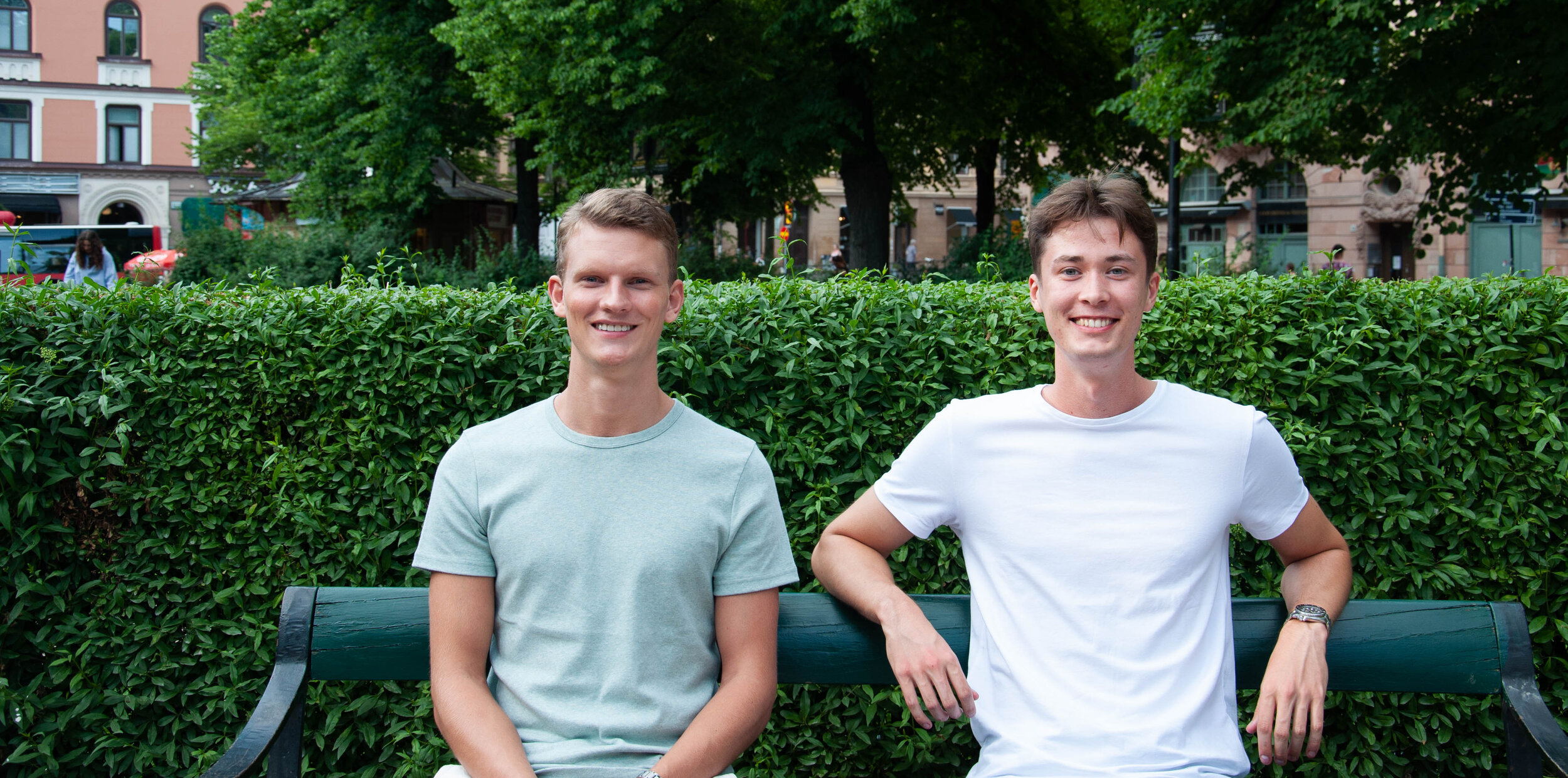
iNTERVJU MED JaCob & Ludvig
We sat down with Jacob Toresson (left) and Ludvig Frykholm (right), two Master’s students who chose to study abroad with Project Vita in Linga Linga, Mozambique, and they told us the good, the bad, and the ugly about doing a Field Study abroad.
What do you study?
We are studying for our Master's degree in Engineering, with a minor in Computer Science at the Royal Institute of Technology (KTH) in Stockholm. Our field study was for our Bachelor's thesis in our third year of the program.
Where did you go for your field study, and what was your project?
For our study, we went to the rural village of Linga Linga on the eastern coast of Mozambique. In our project, we researched if computer hubs could increase technological inclusion in impoverished areas.
What is a computer hub?
A computer hub is a public space with Internet-connected computers for everyone to use, free of charge. Compared to an internet cafe, the main focus of a computer hub is learning and providing a way for communities to connect.
How has your project continued after your Field Study?
In the beginning, the hub will be open on Sundays for people to use the computers for free to create interest in the village. However, as demand increases, we will have to charge a small fee to use the machines to facilitate more opening hours, better connectivity, and a mentorship program to help the villagers become more computer literate. Our long-term goal is to combine the new computer hub with a proposed cultural center.
How was it to travel to Mozambique on a Field Study?
It was amazing! Mozambique is a fascinating place, with beautiful nature and lots of opportunities for outdoor recreation. In addition, the local people were all so kind and genuinely interested in our project, and we got to play soccer with the kids from the village.
What was it like going on a Field Study with Project Vita as your local contact?
The local Project Vita staff provided us with so much support, which is essential in a place where you don't speak the local language (Portuguese). They interpreted, found our local contacts, and helped us understand the culture and customs in Mozambique. It was hugely reassuring to know that we weren't alone.
Which is the most special memory from your Field Study?
One day we were playing soccer at the beach when suddenly a group of about fifteen kids ran up and wanted to join us. Of course, that was a great time! But the memory that stands out the most for both of us was when Isabella (one of the testers at our computer hub) opened a computer for the first time. Her joy and excitement over something as simple as using a laptop made our whole project worthwhile.
Do you have any advice for future students traveling to Linga Linga?
Bring tons of charging cables - they are tough to get in Mozambique, and they always seem to break. Have a detailed schedule to keep your project on track, and it's always a good idea to learn some Portuguese. We didn't understand any before arriving, and while we managed fine, it would have made our lives a lot easier.
Finally, have fun and try not to worry too much! Life in Mozambique goes at a different pace, and things tend to work themselves out. You won't be able to plan for every eventuality, but you've got a great team supporting you, and you'll figure it out as you go.
What are the pros and cons of doing a Field Study for your thesis?
Unfortunately for us, we also had a course back in Sweden that paralleled our Field Study, which forced us to take all our tests online. This was often a challenge, as the internet connection in Mozambique is often unreliable, which is very frustrating when you rely on it for your study. That's why it's so important to have a well-managed schedule.
But the pros vastly outweigh the cons. First, it's much more fun and challenging to do a Field Study for your thesis - getting to meet new people, immerse yourself in a new culture, and explore parts of the world you'd never see otherwise makes up for all the inconvenience. Plus, experience working with NGOs in developing countries looks great to future employers.
But the best part of doing a Field Study is knowing that you're making a difference in the lives of people less fortunate.
Has your Field Study affected your view on development work and your role as future engineers?
Definitely! Before, neither of us saw development/aid work in our futures, but knowing how rewarding the work is changed that. There is so much need for engineers, and the solutions in Mozambique are usually quite simple. A perfect example is how easily we can improve internet speeds with better software instead of massive infrastructure investments.
How has the Field Study affected you?
We appreciate food a lot more now! Neither of us is a great cook, and we were both sick of our cooking after three months. But more importantly, we gained a very different perspective on aid work, now we both see it as a potential future career.
Would you recommend others to travel on a Field study?
Absolutely. Our time in Mozambique was so much more rewarding and fun than we imagined. We both feel great about working for the greater good, and it looks great on a résumé. And for anyone traveling to Africa for study, Project Vita is a great partner, and we highly recommend their programs.
To learn more about Jacob and Ludvig’s project, follow Project Vita on Instagram or Facebook. If you would like to learn more about volunteering, please fill out the form on our volunteering page.


